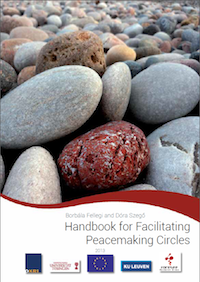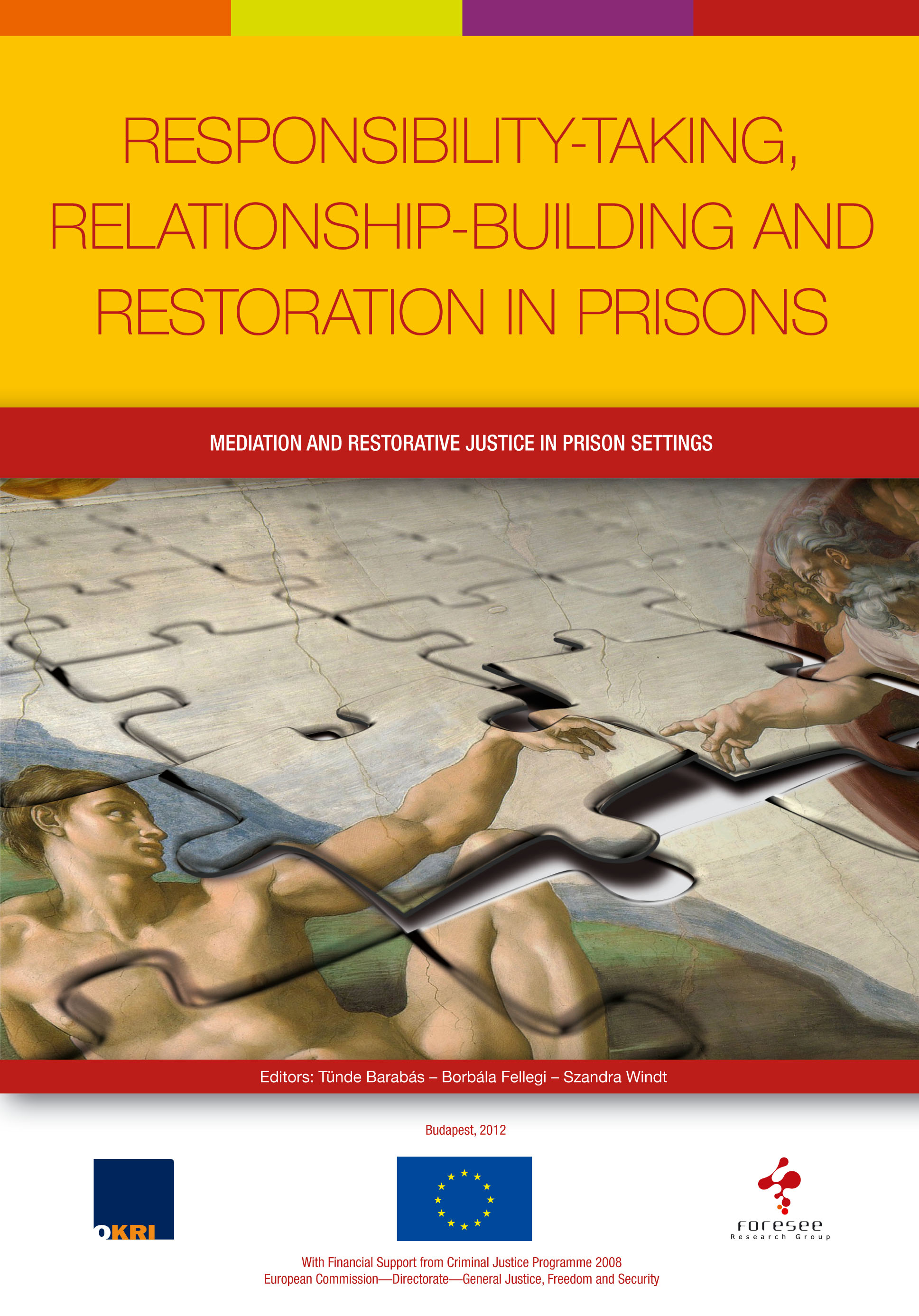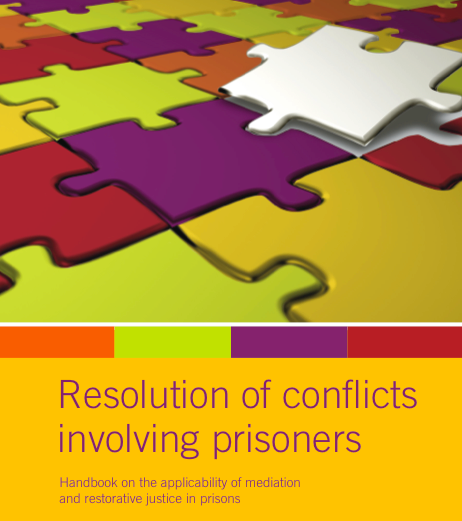
Network building
We believe that one profession alone cannot work out efficient solutions for social problems. With its interdisciplinary network of professionals, Foresee promotes the feasibility of cooperation between professions. We focus on the unifying of various professions, information exchange, and empowerment of once-isolated emerging professional communities and complementary supporting activities.
2018. 07. 02
|
The nonprofit organization, Foresee Research Group, received the 2018 European Forum for Restorative Justice (EFRJ) award for outstanding contributions. Please read the article of Laura Mirsky from the eFORUM of the International Institute for Restorative Practices (June 2018). Source: Laura Mirskly, IIRP eFORUM June... |
2015. 07. 13
|
Budapest hosted the next international workshop of the Deradicalisation Working Group of Radicalisation Awareness Network (RAN), an EU initiative to bring together first-line practitioners working to counter violent extremism and foster disengagement processes. The event hosted 17 practitioners from Germany, Denmark, Finland, Sweden, Norway, England and Hungary for two days. Foresee Research Group was represented by Zsuzsanna Z. Papp. On the first day of the meeting, practitioners worked on ’RAN Derad Declaration of Good Practice’, a draft document that... |
2014. 09. 03
|
International workshop presenting the preliminary findings of the Hungarian and Austrian action research sites in the ALTERNATIVE project A critical dialogue about the potential of restorative justice approaches (RJ) to peaceful co-existence in intercultural contexts in the CEE region on 6-7 November 2014 in Budapest, Hungary. Thinking out Loud about Justice and Security The conference is organised by the Foresee Research Group in partnership with the Institute for the Sociology of Law and Criminology (IRKS), within the framework of the |
2014. 08. 10
|
For more than a year now, Foresee Research Group has been part of the series of events organized by the Radicalisation Awareness Network (RAN). This time the meeting aimed to continue the involvement of field practitioners and non-governmental organizations from new member states from the Eastern and Southern European region and bring them together with old members in order to exchange experience, share good practices and network. The conference took place on 17 and 18 July, 2014 in Sofia, Bulgaria involving 25 representatives of Bulgaria, Romania, Greece, Poland, Hungary, Ireland, UK, Germany and Sweden. Foresee Research Group was represented by Zsuzsanna Z. Papp. |
2013. 07. 22
|
The Radicalisation Awareness Network (RAN) Deradicalisation Conference took place in the lovely city of Ljubljana with the participation of 25 experts from 14 countries (Austria, Bosnia and Herzcegovina, Croatia, Czech Republic, Germany, Hungary, Italy, Kosovo, Netherlands, Northern Ireland, Slovakia, Slovenia, Sweden, UK ) representing 20 non-governmental and governmental organisations and universities including Zsuzsanna Z. Papp from Foresee Research Group. RAN is set up by the European Commission as an EU wide umbrella network of practitioners and local actors involved in countering violent radicalisation and extremism with the aim of exchanging experiences, knowledge and good practices The main working mode of the two-day meeting took the form of interactive workshops that provided a good ground for exchange of information, inspirational dialogues and a great possibility to network. |
2013. 06. 13
|
The general objective of the project “Best Practices of Community Conflict Management in the Central Eastern European Region” (hereinafter referred to as GPCCM-REG) was to create a methodological and practical guide to local practitioners of the EU Member States, in which they would be able to find helpful instructions on how to plan, fund and implement programmes aiming at community conflicts prevention and/or management. Based on research findings, a distinction can be made between Member States of the Central Eastern European region and Western European region on the grounds of (apart from other characteristics) value dimensions and community organisation aspects. Due to historical reasons, one... |
2011. 11. 14
|
As part of REDICT (Resolving Disputes in twenty-first CenTury) project the Czech project leaders in cooperation with Hungarian, Slovak, Lithuanian and Italian partners agreed upon organizing four personal meetings during the project's two year lifespan starting at the fall of 2011. The reason for this was to get to know each other's cultural heritage and habits, and thus to forward the main aim of the project: broadening the knowledge of the general public and the related professions considering alternative conflict management.
The first meeting took place in Vilnius, the representatives of the partner organisations were as follows: - The Greek Catholic Faculty of the... |
2011. 08. 23
|
Foresee is partnering in the project entitled “Resolving Disputes in the 21st Century” funded by the EU's Lifelong Programme "Grundtvig"
One of Foresee’s partners, the European Institute of Reconciliation, Mediation and Arbitration (ESI) won an EU application, and with Foresee’s and other’s partnership will be carrying out its project in the framework of the Grundtvig EU-Project. You can read more on the project below. Foresee’s special role within the project’s aim will be to focus on the potential of alternative methods of solving disputes in community-related conflicts (such as Roma-non-Roma conflicts) and in the crime prevention and criminal justice field (based on the restorative justice approach). |
2009. 09. 10
|
The team training held by Foresee Research Group for the tutors of Crime Prevention Academy aimed to define the route of future activities through sharing professional experience, brainstorming and conciliating expectations. The Educational Network consists of theoretically prepaired and practically experienced professionals who would like to facilitate inland crime prevention by adding their empirical observations on child support, victim support, drug crimes etc. The meeting's main goal was to mobilize the network... |




















